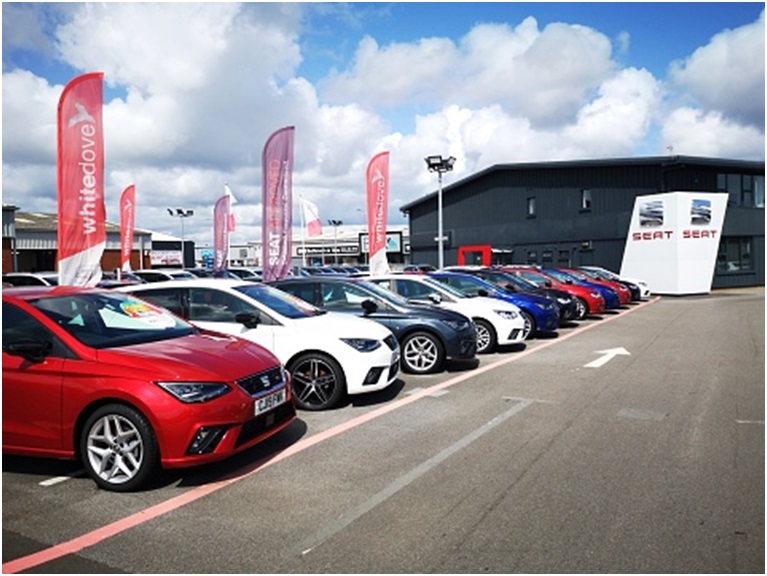Hidden Costs When Buying A Used Car

Are you planning to buy a used car? This route is a cheaper way to get the car of your dreams. However, you have to understand some hidden costs that are usually overlooked. You have to pay these costs even when you might not realize it. Understanding these costs will help you know whether you’re paying a reasonable price for the car.
Add-ons
When purchasing a used vehicle from a dealership, any add-ons might contribute to the total price. Do you need an extended warranty? Perhaps you want the car to come with paint protection and anti-theft devices.
The dealer might offer to sell you the car with the add-ons you want at a higher price. Alternatively, the dealer might provide you with a vehicle with many tech add-ons to sell you at a higher price. So, be careful regarding the add-ons you want and those you don’t need.
Dealership fees
Buying from a local dealership is the best way to buy a used car. However, you have to pay dealership fees when purchasing a preowned car. This cost includes various expenses such as title, license, vehicle registration, and documentation fees. The dealership incurs these costs to make the vehicle ready for buyers.
And, the total cost of the vehicle will cover these costs. Other costs the dealership incurs to make the car ready for you include:
- Emissions testing
- Deal preparation
- Advertisement
Although some of these fees are efforts to get more money out of your pocket, some are mandatory by law. Keep in mind that all dealerships for car sales in Ottawa don’t charge similar fees. So, do your homework when searching for dealerships.
Sales tax
You pay a 5 percent federal sales tax and a provincial sales tax when buying a used car from a dealership, just like buying a new car. A dealership does commercial business, so you have to pay tax. Ottawa doesn’t charge tax on car sales through private arrangements.
Therefore, there’s a chance of getting away without paying if you buy a used car from an individual. However, you risk a lot. All in all, buying a used car from a dealership is recommended for peace of mind despite the tax obligation.
Insurance cover
Paying insurance for a used car is cheaper than paying for a brand new car. However, it can become expensive when not doing well financially. When negotiating with the dealer, ensure to have the cost of insurance factored into the car price. Additionally, do your homework to find the best premium coverage.
Some of the things that determine the cost of insurance premium for a used car include:
- Type of premium
- Vehicle age
- Amount of cover
- Vehicle model and brand
- Marital status
- Average annual mileage
- Driving record
- Age and location
Insurance is among the expensive perks of owning a car but is necessary. Do due diligence before your purchase.
Fuel consumption
How much fuel the car consumes determines its price. Fuel economy is the most significant consideration when planning to buy a used car. Vehicles that offer more gas mileage cost a bit more than their gas guzzler counterparts.
When planning to use the car for commuting, you risk paying a higher premium to get one with better fuel efficiency. Keep this in mind when selecting a used car to buy. A car with better fuel economy costs more on the initial purchase but will save you a significant amount in the long run.
Finance costs
There are various finance options to purchase a used car. Although buying a preowned car saves money, you might not have the whole amount. Additionally, you might be having bad credit. Fortunately, some dealerships offer finance options, including car bad credit loans.
When selecting the dealership, it pays to understand their finance options. Do your homework to find a dealership with a favourable finance option that matches your situation. You can do this online without having to go to their office. Make sure that you qualify for their finance option before moving to the next stage of purchasing your vehicle.
Maintenance and upkeep
Any car requires tune-ups and repairs at some point during its lifecycle. You have to keep this at the back of your mind when selecting a used car. Looking at the total price is not enough. You have to understand how much it will cost you to keep the vehicle road-worthy. Cars come with ongoing expenses since parts are likely to need replacement over time.
Bottom line
Buying a preowned vehicle in Ottawa is a cost-effective way to drive the vehicle of your dreams. You have to understand the various costs that come with that particular car. This ensures that you end up with a vehicle you’ll use for years to get good value for money.